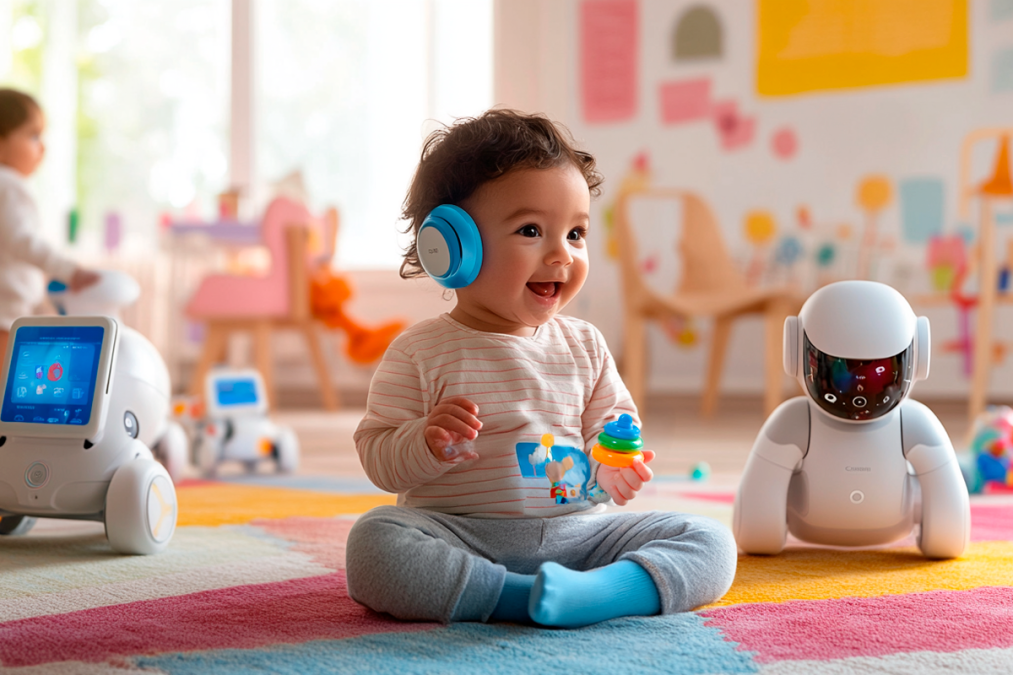The beginning of 2025 marks the birth of a new generation that will bring with it unprecedented challenges: the Beta generation. These children, born between 2025 and 2039, will grow up in a world where technology and artificial intelligence will not only be tools, but an intrinsic part of their daily reality.
Mónica Messa, director of the Psychology degree at the Franz Tamayo University, Unifranz, points out that this new generation poses a series of challenges, such as designing tools and strategies that allow them to develop their potential in a context marked by hyperconnectivity, rapid changes. and new social demands.
“It will be essential to balance technological advances with the care of emotional, social and cognitive well-being,” he points out.
Analyst and demographic expert Mark McCrindle assures that for this new generation “digital and physical will be indivisible.” While Generation Alpha saw the rise of smart technology, Generation Beta will live in an era where artificial intelligence and automation will be fully integrated into fields such as education, healthcare and entertainment.
In this context, Messa mentions some notable challenges for this new generation:
- Emotional and social development in a digitalized environment
Hyperconnectivity poses risks such as isolation and technological dependency. “It is crucial to foster social skills that allow Betas to interact beyond the screens, promoting empathy and teamwork,” says Messa.
- Prevalence of mental health problems
Rates of anxiety and depression have increased in recent generations, and Betas are expected to deal with these issues from an early age. According to Messa, “we need preventive strategies that prioritize the emotional well-being of children and adolescents.”
- Information overload
Growing up in an environment saturated with information can hinder cognitive development. The ability to filter and process data will be a key skill for this generation.
- Adaptation to a highly changing world
Betas must be resilient to rapid changes in technology, economy and society. “Cognitive and emotional flexibility will be essential to face an uncertain future,” says Messa.
- Identity and belonging in a globalized world
Globalization and social networks can generate identity crises. Therefore, it will be important to work on building a solid and balanced identity.
- Environmental awareness and climate anxiety
Betas will grow up in a world affected by climate change, which can lead to anxiety and worry about the future. “It is necessary to educate them in sustainability and climate action so that they are agents of positive change,” concludes Messa.
The Beta Generation in figures
McCrindle highlights that these children, children of Millennials and older members of Generation Z, will be the first to grow up in a post-Covid-19 world and will represent 16% of the world’s population by 2035. Many of them will live to 22nd century, facing challenges that we cannot yet fully imagine.
Messa reflects that the future of the Beta generation will depend largely on the decisions we make today.
“As a society, we must focus on providing them with tools that balance the use of technology with the comprehensive development of their capabilities. Only in this way can we guarantee their well-being and success in such a demanding world.”
A future full of challenges and opportunities
The Beta generation represents the beginning of a new era, not only for them, but for all of humanity. Hyperconnectivity, rapid change and the demands of a globalized world will require innovative solutions and adaptive strategies.
As Messa explains, “it is not just about preparing them to face challenges, but about empowering them to turn them into opportunities. The key will be to balance technological advances with emotional and social development, ensuring that humanity remains at the center of its development.”
Six generations and their characteristics
- Baby Boomers (1946-1964): people born after World War II. They are optimistic, with a focus on hard work and materialistic consumption.
- Generation (1965-1980): grew up during the Cold War and the rise of neoliberalism; They are independent, pragmatic and adaptable people.
- Millennials (1981-1996): they grew up in a historical context where the Internet appeared, they experienced globalization and various economic crises. They are familiar with technology, progressive values, and a preference for experiences over material goods.
- Generation Z (1997-2009): These people grew up with social networks, have tendencies towards social activism, in addition to showing digital creativity and environmental awareness.
- Generation Alpha (2010-2024): They were born in hyperconnected homes and grew up with the beginnings of artificial intelligence. They are people who maintain a permanent digital connection and learning based on technology.
-
Beta Generation (2025-2039): digital natives deeply marked by technology. However, there is still much to know about them.


















